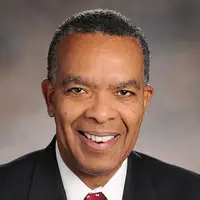One of the many lessons that I learned in my decades-long career in international development is that foreign assistance does not just benefit those who receive it. From protecting our country against pandemic diseases to fighting extremism by educating at-risk youth, U.S. foreign assistance programs strengthen our national security. This is one reason why national security experts, Republicans, and Democrats agree foreign assistance is an investment that pays off big.
Earlier this year, I was honored to join a bipartisan task force led by The Center for Strategic & International Studies (CSIS) that was formed to determine ways to optimize this important taxpayer investment by making it more efficient, effective and accountable. It was our distinct pleasure that Senators Todd Young (R-Ind.) and Jeanne Shaheen (D-N.H.), both members of the Senate Foreign Relations Committee, were the co-chairs of the task force.
This bipartisan task force was convened by Daniel F. Runde, director of the CSIS Project on U.S. Leadership in Development, and consisted of former Bush administration and Obama administration officials, as well as retired senior Foreign Service officers of the U.S. Agency for International Development and the State Department, former ambassadors, and former members of the National Security Council staff.
Now is the time to bolster foreign assistance so that diplomacy, development and defense are all individually empowered and fully coordinated in pursuit of a comprehensive strategy to protect, strengthen and advance U.S. national security interests.
On July 24th, the report "Bipartisan Task Force on Reforming and Reorganizing U.S. Foreign Assistance" was released. This report is intended to be a blueprint for reforming and reorganizing foreign assistance to achieve these goals. As policymakers now consider the path forward, it is important they keep in mind that improving foreign assistance is synonymous with strengthening our national security. In fact, many of the task force’s recommendations seek to fortify the bond between our three pillars of national security: diplomacy, development and defense.
Let’s be honest: of these distinct pillars, development is typically the one that gets overlooked. Recently, there has even been talk about subsuming USAID into the State Department. In my view this would not be a wise course of action. The task force report similarly recommends that USAID continue as an independent agency. As the report notes, international development is its own discipline, requiring unique skills and approaches, and a distinct culture to be effective. USAID is a natural fit to lead these efforts and fully focus on this critical area of American overseas engagement. But improving foreign assistance requires clarifying roles, enhancing coordination and strengthening USAID.
Along these lines, the report recommends designating the USAID Administrator as coordinator of foreign assistance and making him or her responsible for a government-wide development strategy that complements the U.S. National Security Strategy. It also recommends that the Administrator become a permanent member of the National Security Council.
Improving civil society, the rule of law and good governance promotes better business environments, creating opportunities to expand into new markets that would have previously been deemed too hostile or unstable for business.
The task force also urges policymakers to maintain development assistance as its own account within the foreign affairs budget, as opposed to folding it into other accounts. Development assistance programs—for example, programs teaching children to read in sub-Saharan Africa—need a distinct funding stream, as experience shows that they are likely to be short-changed otherwise.[i]
Together, these recommendations paint a clear picture: rather than undercutting development, now is the time to bolster foreign assistance so that diplomacy, development and defense are all individually empowered and fully coordinated in pursuit of a comprehensive strategy to protect, strengthen and advance U.S. national security interests.
Finally, the report’s recommendation to create a new Bureau for Democracy, Human Rights, and Governance reminds us that our business and economic interests are also strengthened when foreign assistance works well. Improving civil society, the rule of law and good governance promotes better business environments, creating opportunities to expand into new markets that would have previously been deemed too hostile or unstable for business.
Foreign assistance is an investment that pays off in many ways. By optimizing that investment, the smart reforms proposed by the task force will make our country stronger.
Aaron Williams is senior advisor for government relations at RTI International. He has previously served as executive vice president of our international development group and executive vice president for government relations and corporate communications. He began a long and distinguished career in public service as a Peace Corps volunteer in the Dominican Republic. Later, he served as a senior official at the U.S. Agency for International Development (USAID), where he reached the rank of career minister in the Senior Foreign Service. In 2009 he was appointed by President Barack Obama as Director of the U.S. Peace Corps.
